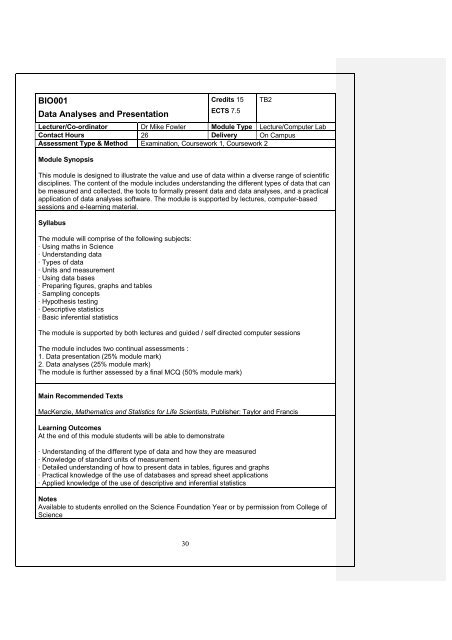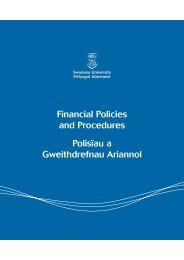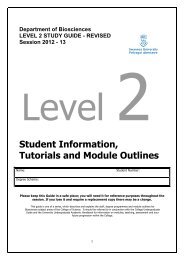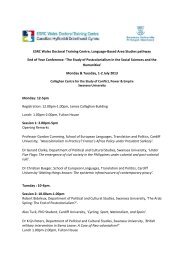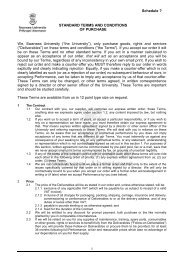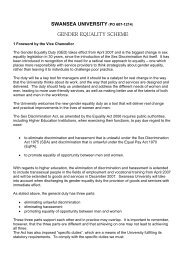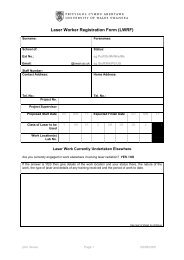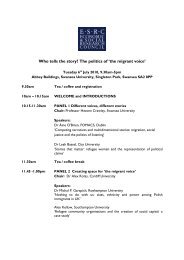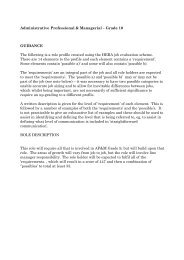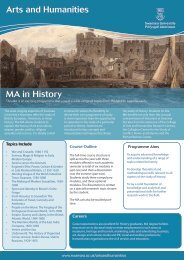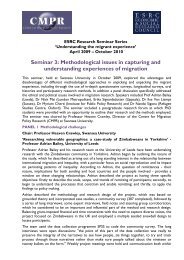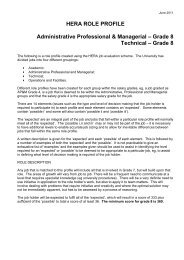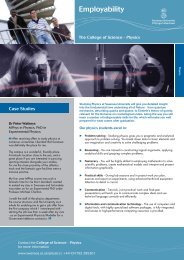Level 0 Study Guide 2012-13 Biosciencex - Swansea University
Level 0 Study Guide 2012-13 Biosciencex - Swansea University
Level 0 Study Guide 2012-13 Biosciencex - Swansea University
You also want an ePaper? Increase the reach of your titles
YUMPU automatically turns print PDFs into web optimized ePapers that Google loves.
BIO001<br />
Data Analyses and Presentation<br />
Credits 15<br />
ECTS 7.5<br />
Lecturer/Co-ordinator Dr Mike Fowler Module Type Lecture/Computer Lab<br />
Contact Hours 26 Delivery On Campus<br />
Assessment Type & Method Examination, Coursework 1, Coursework 2<br />
Module Synopsis<br />
This module is designed to illustrate the value and use of data within a diverse range of scientific<br />
disciplines. The content of the module includes understanding the different types of data that can<br />
be measured and collected, the tools to formally present data and data analyses, and a practical<br />
application of data analyses software. The module is supported by lectures, computer-based<br />
sessions and e-learning material.<br />
Syllabus<br />
The module will comprise of the following subjects:<br />
· Using maths in Science<br />
· Understanding data<br />
· Types of data<br />
· Units and measurement<br />
· Using data bases<br />
· Preparing figures, graphs and tables<br />
· Sampling concepts<br />
· Hypothesis testing<br />
· Descriptive statistics<br />
· Basic inferential statistics<br />
The module is supported by both lectures and guided / self directed computer sessions<br />
The module includes two continual assessments :<br />
1. Data presentation (25% module mark)<br />
2. Data analyses (25% module mark)<br />
The module is further assessed by a final MCQ (50% module mark)<br />
TB2<br />
Main Recommended Texts<br />
MacKenzie, Mathematics and Statistics for Life Scientists, Publisher: Taylor and Francis<br />
Learning Outcomes<br />
At the end of this module students will be able to demonstrate<br />
· Understanding of the different type of data and how they are measured<br />
· Knowledge of standard units of measurement<br />
· Detailed understanding of how to present data in tables, figures and graphs<br />
· Practical knowledge of the use of databases and spread sheet applications<br />
· Applied knowledge of the use of descriptive and inferential statistics<br />
Notes<br />
Available to students enrolled on the Science Foundation Year or by permission from College of<br />
Science<br />
30


